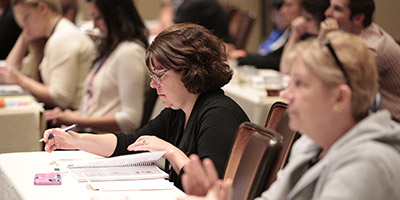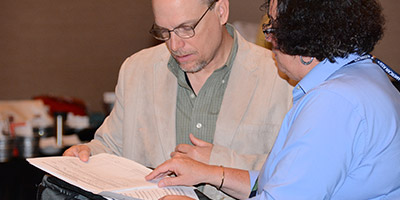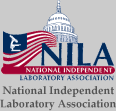Certification Standards for High-complexity Clinical Laboratory Director (HCLD)
Effective December 28, 2024
To be eligible for certification as a High-complexity Clinical Laboratory Director (HCLD), an applicant must:
- Meet the qualifications as a laboratory director of a laboratory performing high complexity testing under CLIA ’88, Code of Federal Regulations, Title 42, Part 493, Subpart M, Section 493.1443(a)* and either 493.1443(b)(1)*, 493.1443(b)(2)*, )*, or 493.1443(b)(4)* and have successfully completed at least 32 semester hours in chemistry or biological sciences acceptable to the Board. These hours can be earned from both undergraduate and graduate courses; OR
- Hold a Doctor of Philosophy (Ph.D.) or Doctor of Science (Sc.D.) degree from an accredited institution (see rule 11 under General Regulations) in a chemical, biological, clinical or medical laboratory science, or medical technology as the major subject and have successfully completed at least 32 semester hours in chemistry or the biological sciences acceptable to the Board. These hours can be earned from both undergraduate and graduate courses; OR
- Hold an earned Doctor of Clinical Laboratory Science (DCLS) degree or other clinical/professional doctoral degree in a chemical, biological, clinical or medical laboratory science, or medical technology, or a doctoral degree in a field that is not in a chemical, biological, clinical or medical laboratory science, or medical technology that is acceptable to the ABB Board and either have completed:
- at least 16 semester hours of doctoral-level coursework in biology, chemistry, medical technology, clinical laboratory science, or medical laboratory science; OR
- an approved thesis or research project in biology, chemistry, medical technology, clinical laboratory science or medical laboratory science, related to laboratory testing for the diagnosis, prevention, or treatment of any disease or impairment of, or assessment of the health of, human beings; AND
- at least 32 semester hours in chemistry or biological sciences acceptable to the Board. These hours can be earned from both under¬graduate and graduate courses.
In addition, applicants for HCLD certification must:
- Have a minimum of four (4) years** of clinical laboratory experience in a CLIA-certified high complexity laboratory** that returns individual patient results to a clinician for use in patient care (excluding experience in a laboratory that holds a CLIA Certificate of Registration, Waiver, Provider-Performed Microscopy Procedures, or is a Moderate Complexity Laboratory) on human specimens within the ten (10) years immediately prior to the application date. This experience must include:
- A minimum of two (2) years of experience, within the ten (10) years immediately prior to the application date, directing or supervising high complexity testing on human specimens in a CLIA-certified laboratory**; AND
- A minimum of two (2) years of experience in a CLIA-certified laboratory** that includes a minimum of and at least one (1) year of experience in a CLIA-certified laboratory in the technical discipline(s) in which the applicant will be taking the examination(s). AND
- In light of CMS/CLIA’s decision to suspend enforcement of the 20 CE credit regulation, ABB decided to suspend this requirement from ABB’s eligibility criteria for high complexity laboratory director certification until such time that CMS decides to enforce this requirement Have at least 20 Continuing Education (CE) credit hours in laboratory practice that cover laboratory director responsibilities defined in Section 493.1445, CLIA regulations effective December 28, 2024; AND
- Pass the ABB examination in General Knowledge and in at least one (1) of the following clinical laboratory disciplines or specialties: Andrology; Chemistry (including urinalysis, endocrinology and toxicology); Diagnostic Immunology; Embryology; Hematology (including flow cytometry); Microbiology (includes bacteriology, parasitology, virology, and mycology); Molecular Diagnostics; or Public Health Microbiology.
Effective January 1, 2021, Molecular Diagnostics is defined as "testing that involves the manipulation and examination of nucleic acid in a high complexity testing environment." See General Regulations #21
For the specialty of Embryology, see General Regulations #19. For the specialty of Andrology, see General Regulations #20.
* Individuals with an M.D., D.O., or DPM degree, must also be licensed to practice medicine, osteopathy, or podiatry in the state in which the laboratory is located. If the laboratory is owned and operated by the U.S. government, then the individual with an M.D., D.O., or DPM degree must be licensed to practice medicine, osteopathy, or podiatry in at least one (1) state in the U.S.
** Experience earned within the U.S. or U.S. territories, must be earned in a CLIA-certified high-complexity laboratory. Embryology experience may be earned in a laboratory that holds CAP or TJC accreditation. For rules regarding experience earned outside of the U.S., see General Regulations #13. For employment verification requirements, see General Regulation #22.
PLEASE READ - Instructions for completing the Application for ABB Certification










